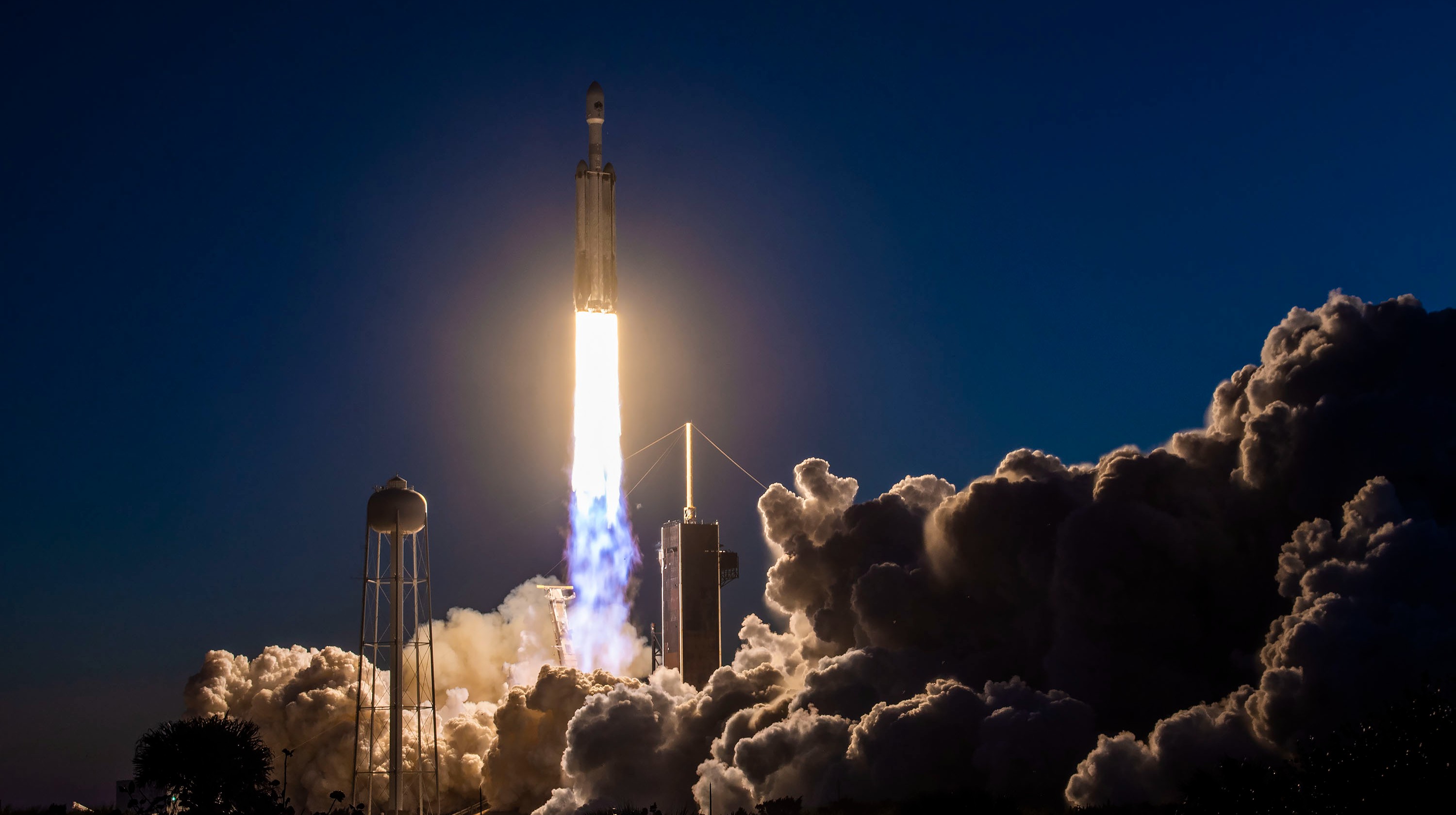SpaceX targeting July 26 for next Falcon Heavy launch (video)
SpaceX's powerful Falcon Heavy rocket will fly this week, if all goes according to plan.
SpaceX is officially targeting Wednesday (July 26) for the Falcon Heavy's next liftoff, the company announced via Twitter — sorry, via X — today (July 24). That launch will take place from NASA's Kennedy Space Center (KSC) in Florida.
"Teams completed the launch readiness review, and we are targeting Wednesday, July 26 for Falcon Heavy's launch of the @HughesConnects JUPITER 3/@EchoStar XXIV satellite from Launch Complex 39A in Florida," SpaceX wrote.
SpaceX is aiming for a liftoff time of 11:04 p.m. EDT (0304 GMT on July 25), according to EverydayAstronaut.com. You can watch it here at Space.com, courtesy of SpaceX, when the time comes.
Related: SpaceX launches 3 satellites to orbit on 6th-ever Falcon Heavy mission
The coming mission will be the seventh for the Falcon Heavy, which was the world's most powerful operational rocket until NASA's Space Launch System debuted on the Artemis 1 mission last November.
SpaceX is working to get that title back with its next-gen Starship vehicle, which will be the most powerful rocket ever when it's up and running. (Starship has flown once to date, on an April 20 test flight that ended with a commanded destruction four minutes after liftoff.)
Breaking space news, the latest updates on rocket launches, skywatching events and more!
The Falcon Heavy consists of three strapped-together first stages of the company's workhorse Falcon 9 rocket. The central booster is topped with an upper stage and the payload(s).
Those three first stages are designed to be reusable. If all goes according to plan, the two side boosters will come back to Earth about eight minutes after liftoff, touching down at Cape Canaveral Space Force Station, which is next door to KSC, SpaceX said via X today.
The central booster will apparently not be recovered, due to the Jupiter 3 satellite's heft. At 10.1 tons (9.2 metric tons), it will be the heaviest payload ever launched toward geostationary orbit, which lies about 22,200 miles (35,700 kilometers) above Earth.
The Falcon Heavy debuted in February 2018, on a highly anticipated test flight that sent Elon Musk's red Tesla Roadster into orbit with a mannequin nicknamed Starman behind the wheel.
Falcon Heavy has now launched a total of six times, including twice in 2023. The relatively low launch cadence to date is due in large part to delays in the development of the satellites slated to fly on the powerful rocket, experts have said.

Michael Wall is a Senior Space Writer with Space.com and joined the team in 2010. He primarily covers exoplanets, spaceflight and military space, but has been known to dabble in the space art beat. His book about the search for alien life, "Out There," was published on Nov. 13, 2018. Before becoming a science writer, Michael worked as a herpetologist and wildlife biologist. He has a Ph.D. in evolutionary biology from the University of Sydney, Australia, a bachelor's degree from the University of Arizona, and a graduate certificate in science writing from the University of California, Santa Cruz. To find out what his latest project is, you can follow Michael on Twitter.

